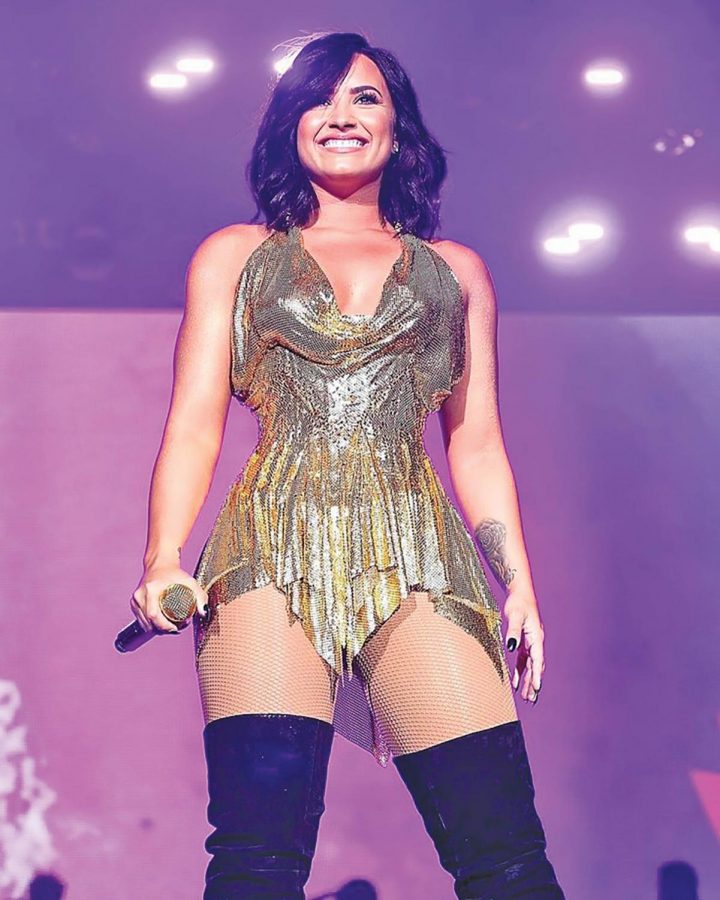When the internet goes awry, there’s only one to blame: the platform, users
Lovato has faced backlash on Twitter before, most recently following her drug overdose last July.
When have memes gone too far? For some, the answer to that question is 21 Savage writing with a feather pen.
For those lucky enough not to understand that sentence, the short version of the story goes like this: The rapper 21 Savage was arrested by Immigration and Customs Enforcement in Atlanta, on the basis that he is allegedly a British citizen who overstayed his nonimmigrant visa and is residing in the United States illegally.
Following this event, singer and former actress Demi Lovato tweeted that her “favorite part[s] of the Super Bowl” were memes about 21 Savage writing with a feather pen and doing other stereotypically British activities. Almost immediately, other Twitter users criticized her disrespect and lack of empathy for 21 Savage in this situation, with some making fun of her history of drug abuse. Lovato then deactivated her account.
Did I say short version? That’s actually the whole story. Nothing more. It seems like an isolated event. However, it actually illustrates a lot about social media culture as a whole, specifically the disconnect between how discourse functions within the world of Twitter and Facebook, and that of the real world.
In real life, when someone you know makes a snide comment about a person’s arrest, especially one at the hands of an agency like ICE, you rightfully consider that person to be a jerk (or at least acting like one). Likewise, in real life, when the person who makes a snide comment is met with responses like “What do you know? You’re the girl that overdosed on heroin and almost died,” the people responding that way are also jerks.
The problem with Lovato’s tweet, and the backlash that she encountered, isn’t that they are wrong, or off-color, or in bad taste, per se. The problem is that social media sites like Twitter are designed to elicit exactly those kinds of comments and responses in the first place.
Social media is, to use the words of Jean Baudrillard, a simulation of reality. Things that have no currency in the real world have currency on Twitter or Facebook. Real world conversations do not (or at least should not) involve casually making fun of drug addicts or undocumented immigrants.
On social media sites, however, those snide comments and memes that serve to make a person feel superior to another, or feel empowered, or simply shock ‘decent’ people, are exactly the ones that generate the most likes, retweets and general conversation.
Should Lovato have said what she did about 21 Savage? No. Should she be attacked with her own personal failings for saying it? Also no. The issue here is that these simple questions completely miss the point. The institutional framework of Twitter and Facebook rewards this kind of behavior that is shunned in the real world. Whatever we can ethically say about her comment and the responses, it will not make a difference while the systemic rewards for doing so remain in place.
It is illogical to presume that shaming one person, even one with an online audience as big as Lovato’s, is the path to changing spiteful, even hateful, online rhetoric. That is not justice; it’s just more of the same.







